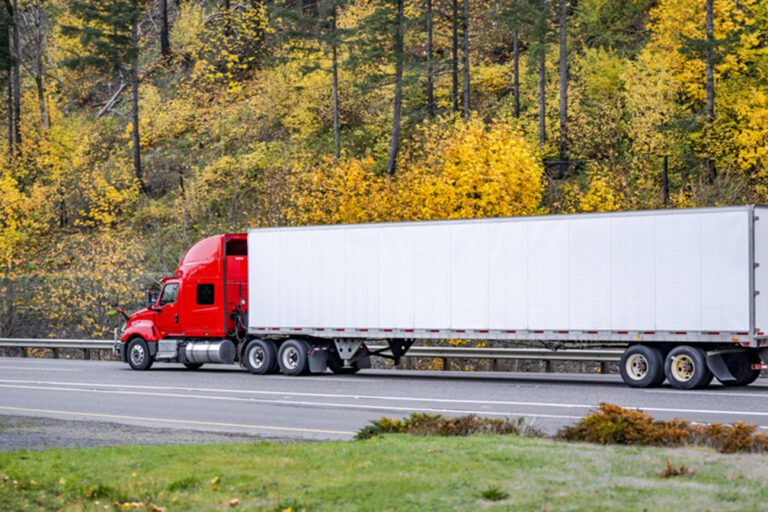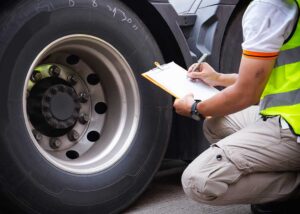It’s not unusual for truck drivers to think about buying their own truck, either leasing to a carrier or obtaining their own authority and starting their own fully independent business. For some people, truck ownership remains a dream, while for others it’s the next step in a career progression.
Another “big step” purchase is a trailer. If you’re leasing to a carrier, owning a trailer can increase your revenue opportunities. If you’re running under your own authority, it’s practically a necessity.
However, trailer ownership comes with the same issues as tractor ownership— and then some. If you’re thinking about buying a trailer, it’s important to consider how you’ll use it, along with the benefits and detractions, before you take the plunge.
TOTAL COST OF OWNERSHIP
Like the tractor market, the market for trailers is heavily influenced by the freight market. When freight is plentiful and rates are high, both new and used trailers can be difficult to come by. That’s been the case for the last two years as builders have been unable to keep up with demand and carriers endured waiting lists for new trailers.
At the time of this writing in early 2024, trailers are a little easier to find and prices are starting to moderate, but there are still problems to overcome. Freight rates are stagnant and aren’t expected to rise much in the next six to 12 months, if at all. If you’re counting on the spot market, obtaining loads as needed from brokers and load boards, it may be tough to see a return on your investment.
Another issue is the cost of credit. Because of increases in the federal funds interest rate made by the Federal Reserve, interest rates for all types of loans have increased. If you’re planning to buy a trailer on credit, you’ll pay a higher interest rate (that’s if you can get the loan at all).
That brings us to the other issue with credit: Lenders have been plagued with borrower defaults in the past two years and are tightening their lending policies. In many cases, they’re demanding higher credit scores and larger down payments, denying loans at a much larger clip than before the COVID-19 pandemic.
Once you secure funding and buy a trailer, your business expenses will go up. Trailers have tires, brakes, lights, air lines and other systems that require maintenance. And don’t forget that you’ll need to provide insurance coverage as well. For some types of trailers, you’ll need securement devices, cargo securement devices or other items. You’ll also need a place to park the trailer, which will take up more space than the tractor you might have bobtailed home for your time off.
You’ll also need to think about fuel costs. Aerodynamic treatments such as skirts, spoilers, special mud flaps and more are available. These are investments that can pay for themselves over and over — but the initial cost must be paid, plus you’ll have to pay for any damage they sustain in the course of your work.
After totaling the cost, it’s time to ask yourself the defining question: Will the additional revenue generated by the trailer be worth it? Some carriers compensate independent contractors at a higher rate if they provide their own trailers, but you’ll lose the ability to drop and hook at customer locations, adding to your idle time as you wait for live loads and unloads.
TRAILER TYPES AND CARGO
Some carriers operate a variety of equipment types, and your new trailer may restrict you from hauling certain loads. For example, if you have a flatbed trailer and the customer requires a drop-deck trailer, you won’t get the load. Or, if you opted for a refrigerated trailer, or reefer, the loaded weight could be too heavy for a particular load a customer is offering. A larger carrier could simply send a different, lighter-weight trailer — but as an independent operator, you’re stuck with using what you own.
If you’re operating under your own authority, consider your customers’ needs before investing in a trailer. For example, you may find a discount on a 48-foot van trailer, but if you have to turn down loads that require the extra room provided by a 53-foot trailer, that “great buy” could cost you in the long run. The customer may also have specific requirements for securement, such as the use of straps and e-tracks or prevention of sliding by nailing dunnage to the floor. If your trailer has an aluminum floor instead of wood, this is a challenge.
If you’re looking at buying a flatbed trailer, there are more considerations. Will you need a side kit and cover? Perhaps a retractable “tarp” system? Both can save time and protect your customers’ cargo, but they will add significantly to your cost and add weight to the trailer. Think about the freight you’ll be hauling: Are the savings in labor and time worth the additional expense?
Fewer drivers will purchase tank trailers, but if you’re looking, you’ll discover that there are various features and types. For instance, baffles can smooth the ride, and individual compartments allow different products to be carried on the same trailer. However, food-grade products require trailers to be clean — and baffles make cleaning more difficult. Some products require special linings to prevent reactions with chemicals. Be sure you know your customers’ requirements before investing.
If you’re planning to get your loads from a spot market, it could be well worth your time to have a conversation with a freight broker or someone familiar with the market before selecting a trailer. A broker might be able to advise you of how much freight is available for different trailer types and what it pays.
As is true with any purchase, timing can sometimes mean everything. A year from now, interest rates are expected to be lower and freight rates are expected to start slowly climbing. It might be a better business strategy to wait before replacing or buying a new trailer. Every business is different, however, and you’ll need to make decisions based on your own circumstances.
Cliff Abbott is an experienced commercial vehicle driver and owner-operator who still holds a CDL in his home state of Alabama. In nearly 40 years in trucking, he’s been an instructor and trainer and has managed safety and recruiting operations for several carriers. Having never lost his love of the road, Cliff has written a book and hundreds of songs and has been writing for The Trucker for more than a decade.








